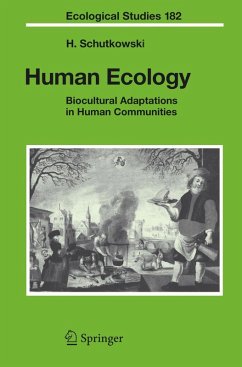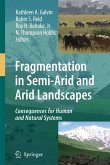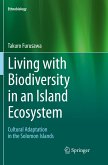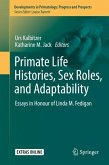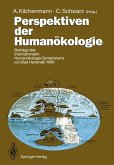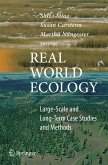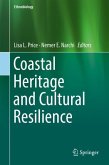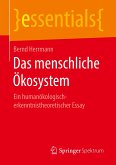This book explores the relationship between cultural strategies and their biological outcomes, combining for the first time an ecosystems approach with cultural anthropological, archaeological and evolutionary behavioural concepts. Beginning with resource use and food procurement behaviour, the text examines major subsistence modes, the circumstances and dynamics of large-scale subsistence change, the effect of social differentiation on resource use and the effects of subsistence behaviour on population development and regulation.
From the reviews: "This volume provides a detailed and thorough synthesis of the literature regarding the interplay between human populations and the characteristics and properties of their local environments, both physical and cultural. ... The volume is to be commended for its breadth and depth of detail and debate, and the publishers are to be congratulated for the inclusion of such a good quality and explicitly human volume within a broader ecological studies series." (Sonia R. Zakrzewski, Economics & Human Biology, Vol. 5 (2), 2007) "Holger Schutkowski's important biocultural synthesis explores the duality between cultural strategies of human resource use and their biological ramifications in both past and present contexts. Indeed, Schutkowski's synthesis succeeds on a number of fronts and is an important contribution that students of human ecology and archaeology will no doubt heed for years to come. ... The book explores a wide diversity of case studies within a theoretical systems-based framework." (John Krigbaum, Journal of Archaeological Science, Vol. 35, 2008)

